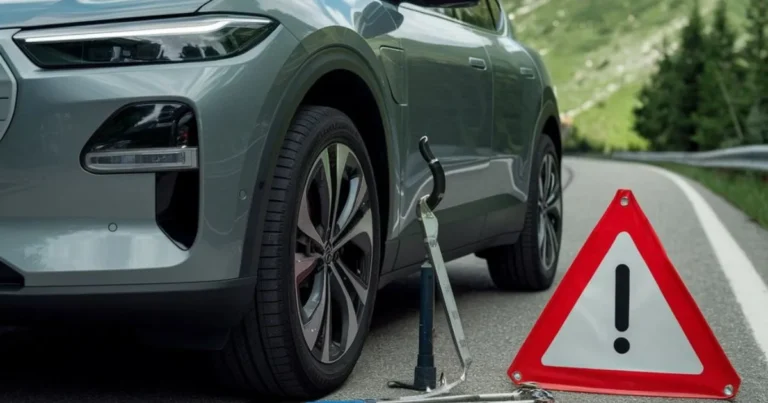Which Car Has the Lowest Road Tax? 7 Budget-Friendly Options
Are you looking to minimize your car expenses? Understanding road tax is crucial, and knowing which car has the lowest road tax can save you a significant amount of money each year. This article will explore the factors influencing road tax and highlight some of the most tax-efficient vehicles available.
Understanding Road Tax and Vehicle Excise Duty (VED)
Road tax, officially known as Vehicle Excise Duty (VED), is an annual tax levied on most vehicles used on public roads in the UK. The amount of VED you pay depends on several factors, primarily the vehicle’s emissions and fuel type. Understanding these factors is the first step in finding which car has the lowest road tax.

- Emissions: Cars with lower carbon dioxide (CO2) emissions generally attract lower road tax rates. Zero-emission vehicles, such as fully electric cars, often have the benefit of paying no road tax at all.
- Fuel Type: Petrol, diesel, hybrid, and electric cars are taxed differently. Electric vehicles typically have the lowest rates, followed by hybrids, with petrol and diesel cars usually incurring higher charges.
- First Year Rate vs. Standard Rate: New cars are subject to a first-year rate based on their CO2 emissions. Subsequent years are charged at a standard rate, which varies depending on the vehicle type.
- List Price: Cars with a list price of over £40,000 are subject to a supplementary charge for the first five years after initial registration. This can significantly increase the annual road tax.
To delve deeper into the specifics of VED rates, you might find the official government guidance helpful. Consider adding a sentence like: “For a comprehensive breakdown of current VED rates, refer to the official guidance on the GOV.UK website.”
Electric Vehicles: The Road Tax Champions
Electric vehicles (EVs) often emerge as the champions when it comes to low road tax. Due to their zero emissions, they are exempt from VED. This makes them an attractive option for environmentally conscious drivers and those looking to reduce their running costs.
- Zero Emissions: EVs produce no tailpipe emissions, contributing to cleaner air and lower tax bills.
- Government Incentives: In addition to road tax exemptions, EVs may also qualify for other government incentives, such as grants for purchasing and installing charging points.
- Running Costs: While the initial purchase price of an EV may be higher, the lower running costs, including road tax and fuel, can offset this over time.
Some popular electric vehicles known for their tax benefits include:
- Nissan Leaf: A practical and affordable EV with a decent range.
- Renault Zoe: A compact and stylish EV ideal for city driving.
- Tesla Model 3: A high-performance EV with advanced technology and a long range.
For more information on the environmental impact of electric vehicles, you could link to a reputable environmental organization. For example: “To understand the broader environmental benefits of electric vehicles, explore resources from the Environmental Defense Fund.”

Hybrid Vehicles: A Stepping Stone to Lower Road Tax
Hybrid vehicles combine a traditional combustion engine with an electric motor, offering a balance between fuel efficiency and reduced emissions. While they may not be entirely exempt from road tax like EVs, they often qualify for lower rates compared to petrol or diesel cars.
- Reduced Emissions: Hybrids produce lower emissions than conventional cars, resulting in lower road tax.
- Fuel Efficiency: The electric motor assists the engine, improving fuel economy and reducing running costs.
- Variety of Options: A wide range of hybrid vehicles are available, from compact cars to SUVs, catering to different needs and preferences.
Examples of hybrid vehicles with favorable road tax rates include:
- Toyota Prius: A popular hybrid known for its fuel efficiency and reliability.
- Hyundai Ioniq: A versatile hybrid offering a range of eco-friendly options.
- Lexus CT 200h: A premium hybrid with a stylish design and comfortable ride.
To compare the real-world fuel efficiency and emissions of different hybrid models, consider linking to a site that conducts independent vehicle testing. For instance: “For detailed comparisons of hybrid vehicle performance, check out the reviews and data available at What Car?.”
Petrol and Diesel Cars: Finding the Most Tax-Efficient Options
While petrol and diesel cars generally incur higher road tax rates than EVs and hybrids, some models are more tax-efficient than others. Factors such as engine size, fuel efficiency, and emissions levels play a crucial role in determining the VED.
- Engine Size: Smaller engines typically produce lower emissions and attract lower road tax rates.
- Fuel Efficiency: Cars with better fuel economy tend to have lower emissions, resulting in lower VED.
- Euro Standards: Vehicles meeting the latest Euro emissions standards often qualify for lower tax rates.
Some petrol and diesel cars known for their relatively low road tax include:
- Skoda Citigo: A small and efficient city car with low running costs.
- Volkswagen Polo: A popular hatchback with a range of fuel-efficient engines.
- Ford Fiesta: A versatile and affordable car with good fuel economy.
You could also include a link to a resource that helps drivers calculate their potential road tax based on vehicle specifications. For example: “Use the Parkers Car Price Guide to estimate the road tax for different petrol and diesel models based on their emissions data.”
Factors Beyond the Car: Other Ways to Save on Motoring Costs
While choosing a car with the lowest road tax is a great start, there are other ways to reduce your overall motoring expenses.
- Driving Style: Adopting a smoother, more fuel-efficient driving style can significantly reduce fuel consumption and emissions.
- Regular Maintenance: Keeping your car well-maintained ensures it runs efficiently and reduces the risk of costly repairs.
- Insurance: Shopping around for the best car insurance deals can save you a considerable amount of money each year.
- Tyre Pressure: Maintaining the correct tyre pressure improves fuel economy and extends tyre life.

Conclusion
Finding which car has the lowest road tax involves considering various factors, including emissions, fuel type, and list price. Electric vehicles often offer the most significant savings, followed by hybrids, while some petrol and diesel cars can also be relatively tax-efficient. By understanding these factors and exploring the available options, you can make an informed decision and minimize your motoring expenses.
Now that you’re armed with this knowledge, why not share this article with your friends and family? Or, leave a comment below with your own tips for saving money on car expenses!
Suggest Amazon Links:
Let me know if you would like any adjustments or further refinements to this article!
There are no reviews yet. Be the first one to write one.







